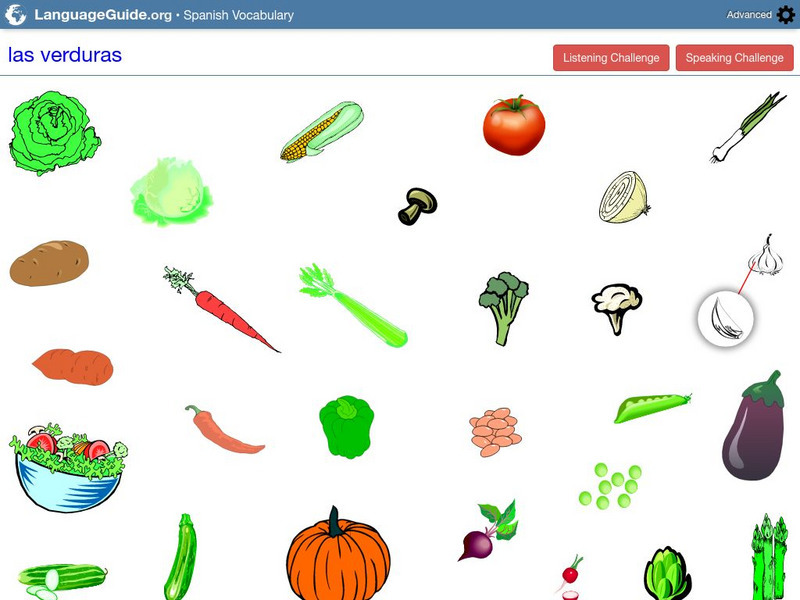Hi, what do you want to do?
Agriculture in the Classroom
Seed Match
Using this resource, your team of green thumbs discuss why plants are a part of a healthy diet and the different ways they are used in daily life. They then observe the characteristics of different seed as they attempt to match...
Curated OER
The Bean Book
A well-designed book on beans teaches kids about the anatomy of a bean. They cut out parts of a bean and paste them together. There are a lot of good descriptions of the parts of beans, such as the embryo, stored food, and the seed coat....
Curated OER
Beans and Baleen
Predict whale populations using different beans as whales! Learners observe different types of beans in a dish knowing that each bean represents a different kind of whale. They then predict how many "whales" there are in a certain area....
Curated OER
Native American Three Sisters Gardens
Students investigate companion planting. In this communtiy gardening lesson students explore the tradition of the Native American Three Sisters gardening approach. Students act as botanists, anthropologists, folklorists, and curators.
Curated OER
Bean Name
Students write their names on pieces of cardboard. In this art lesson, students outline the letters with glue and place beans on the glue.
Curated OER
We’ve Bean Growing: Anatomy of Germination
Students identify the main parts of a seed. In this biology lesson, students explain the factors needed for the seed to grow. They record observations everyday and report findings to class.
Curated OER
Beanie Baby
Students investigate the growing of beans by using a creative experiment. They plant and grow beans in a bag before transplanting them. The bean bag is checked several times a day and the data is recorded. The data is analyzed and...
Curated OER
Sowing Seeds
Students observe earth science by participating in a planting activity. In this seeds activity, students identify the process for seeds to transform into plants which eventually produce food. Students sow seeds in the ground and...
Curated OER
Estimation Skills
Students use a balance scale with beans or seeds to estimate how many of them would weigh as much as a teddy bear counter. In this estimation lesson plan, students hold items to estimate.
Curated OER
Bean Teasers
In this worksheet, students will examine the number of beans, to numerically calculate and the number of beans and place the beans in its proper place in each space. This worksheet would best be used with second and third graders. Who...
Curated OER
Using The Old Bean
In this agriculture worksheet, high schoolers take a multiple choice exam that focuses on the use of beans in different aspects of agriculture and society.
Curated OER
Big Beans, Little Beans
Young scholars measure and note the variation in the lengths of lima beans. They compare the growth rate of different sized beans.
Curated OER
Meat, Fish, and Beans Group
In this food groups worksheet, students read the serving amounts for the food groups of meat, fish, and beans. Students cut out the pictures to match the servings.
Language Guide
Language Guide: Los Vegetales
Colorful pictures and audio files model correct Spanish pronunciation for vegetables. Pop-ups of the correct spelling for each new vocabulary word will appear as you move the mouse over the picture.
Language Guide
Language Guide: Los Vegetales
Colorful pictures and audio files model correct Spanish pronunciation for vegetables. Pop-ups of the correct spelling for each new vocabulary word will appear as you move the mouse over the picture.
Center of Science and Industry
Cosi Columbus: A Swell Activity With Beans [Pdf]
Learn about absorption in this hands-on science experiment. Includes full list of materials, procedures, and scientific explanation of what happens to different types of beans as they soak in water in a test vial.
US Department of Agriculture
Usda: Tips to Help You Make Wise Protein Food Choices
Make wise choices when eating from the protein group. This website advises you to eat lean cuts of beef, trim visible fat off of meat and poultry, eat fish "rich in omega-3 fatty acids," and read food labels for nutritional information.




















![Cosi Columbus: A Swell Activity With Beans [Pdf] Activity Cosi Columbus: A Swell Activity With Beans [Pdf] Activity](https://static.lp.lexp.cloud/images/attachment_defaults/resource/large/FPO-knovation.png)